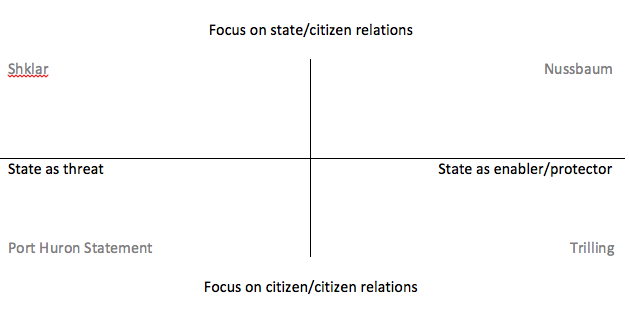- Facebook130
- Total 130
I think the British Parliament made the right decision when it voted not to ban Donald Trump from entering the UK. During the debate, MPs had the opportunity to call him–and I quote–“poisonous,” “a buffoon,” “crazy,” “wrong,” “stupid,” and a “wazzock.” (The Urban Dictionary suggests, as an example of that last term, “You great useless spawny-eyed parrot-faced wazzock.”)
It’s almost never smart to respond to odious speech by keeping it out. It’s almost always better to respond with confident, reasonable, yet forceful speech on the opposite side.
That said, the British are certainly not the only ones to consider banning people on the basis of speech. Indeed, they have a long, if not spotless, record of accepting radicals and subversives of all stripes; Karl Marx is buried in Highgate Cemetery. And we–meaning the executive branch of our federal government–have a long tradition of barring people because of their speech. E.g.,
- Gabriel Garcia Marquez: denied tourist visas on multiple occasions for having contributed to (but not belonged to) the Communist Party
- Michel Foucault, denied a visa to attend a conference on “Knowledge, Power, History: Interdisciplinary Approaches to the Works of Michel Foucault.”
- Pablo Neruda, 1971 Nobel Laureate in literature, denied a visa but admitted after an appeal by Arthur Miller.
- Palestinian poet Mahmoud Darwish, unable to attend the PEN conference in New York City in 1985.
- Andrew Feldman, a Canadian professor, denied entry in 2007, when “a border agent discovered he’d written an academic paper about taking LSD in the Seventies.”
- Hortensia Bussi De Allende, widow of the former President of Chile, who had been murdered in a CIA-supported coup.
- Tariq Ramadan: Swiss scholar, banned from 2004–2010 on various grounds, including for having “endorsed terrorism.”
- The former Cat Stevens (Yusuf Islam): denied entry from 2004-6.
- German author Ilija Trojanov: denied entry while boarding a scheduled flight for unexplained reasons; known for his criticism of the NSA.
I omit from this list two heads of state who were banned for reasons that arguably involved action as well as speech. Former Austrian President Kurt Waldheim was barred for his Nazi affiliation in WWII. Before taking his current office as Indian PM, Nerendra Modi was denied a diplomatic visa and his existing visa was revoked for having (per the US government) “directly carried out … particularly severe violations of religious freedom.”
US policy has oscillated. The 1952 McCarren Walter Act aimed to bar anyone whose presence could be “prejudicial to the public interest,” a 1978 amendment reversed that law, and the Patriot Act excludes aliens who “endorse or espouse terrorist activity” (i.e., for speech alone). Despite these vacillations, barring people from entering the US on the basis of their speech has been rather common. If it was an unwise proposal to ban Donald Trump from the UK, we ought to reconsider our own policies.

